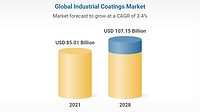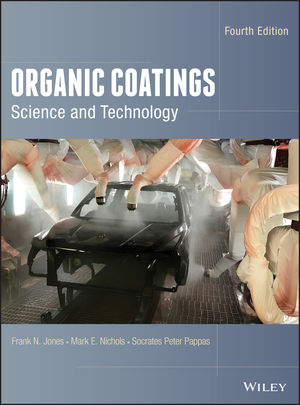New AI-Based Chemical Manufacturing Market Report Predicts Growth

Image courtesy of Transparency Market Research, Inc.
The AI-based chemical manufacturing market was projected to attain USD 2.4 billion in 2023. It is likely to garner a 28.8% CAGR from 2024 to 2034, and by 2034, the market is expected to attain USD 37.6 billion. AI plays a crucial role in ensuring safety and regulatory compliance within chemical manufacturing processes. AI-powered systems can detect anomalies, predict potential hazards, and maintain strict adherence to environmental and safety standards.
Digital twin technology, which creates virtual models of physical assets or processes, is increasingly applied in chemical manufacturing. AI-driven digital twins simulate operations, predict outcomes, and optimize performance, contributing to enhanced productivity and reduced downtime.
Integration of AI with Internet of Things (IoT) devices under Industry 4.0 initiatives enhances connectivity and data exchange across manufacturing operations. This connectivity enables real-time monitoring, predictive maintenance, and improved operational efficiency. Increased investments in research and development aimed at AI applications in chemical manufacturing are driving innovation and the development of new technologies, processes, and products.
AI-powered predictive maintenance algorithms help in reducing downtime by forecasting equipment failures before they occur, thus optimizing asset reliability and improving overall operational efficiency. AI enables real-time monitoring and analysis of production processes, helping to maintain consistent product quality and ensure adherence to stringent quality standards.
Integration of AR and VR with AI enhances training, maintenance, and troubleshooting processes within chemical manufacturing facilities, improving workforce productivity and reducing training time.
Key Findings of the Market Report
- Blockchain applications in supply chain management can enhance transparency, traceability, and security across the chemical manufacturing value chain, ensuring compliance with regulations and reducing the risk of counterfeit products.
- AI-powered collaborative robots work alongside human operators in tasks such as handling hazardous materials, assembly, and packaging, enhancing workplace safety and productivity.
- Accelerated adoption of digital transformation strategies by chemical manufacturers, leveraging AI, cloud computing, and big data analytics to streamline operations and drive innovation.
- With increased connectivity and digitization, there is a heightened focus on cybersecurity measures to protect sensitive data, intellectual property, and operational technologies from cyber threats.
Market Trends for AI-Based Chemical Manufacturing
- By AI technology, the machine learning segment is expected to boost the growth of the AI-based chemical manufacturing market.
- Machine learning algorithms analyze large volumes of process data to optimize manufacturing processes, improve efficiency, and reduce operational costs.
- Machine learning models predict equipment failures and maintenance needs, minimizing downtime and enhancing asset reliability.
- Machine learning enables real-time monitoring and analysis of production variables, ensuring consistent product quality and compliance with quality standards.
- Machine learning facilitates rapid prototyping and iterative design processes, accelerating the development of new products with enhanced properties.
- On the basis of application, the process optimization segment is anticipated to augment the market growth.
- AI-driven process optimization algorithms analyze real-time data to identify inefficiencies, streamline operations, and reduce production costs.
Global Market for AI-Based Chemical Manufacturing: Regional Outlook
North America
- North America, particularly the United States, is at the forefront of technological innovation, with significant investments in AI, machine learning, and data analytics. These advancements drive the adoption of AI in chemical manufacturing for process optimization, predictive maintenance, and product innovation.
- Continued investments in research and development foster innovation in AI technologies tailored for chemical manufacturing applications. Academic institutions, research centers, and industry collaborations contribute to the development of cutting-edge AI solutions.
Asia Pacific
- Industry 4.0 initiatives and digital transformation strategies are gaining momentum across Asia Pacific. AI, IoT, and big data analytics are integrated into manufacturing operations to improve efficiency, agility, and decision-making capabilities.
- Asia Pacific countries are investing in developing a skilled workforce proficient in AI and digital technologies. Training programs and partnerships between academia and industry support the adoption and utilization of AI in chemical manufacturing.
AI-Based Chemical Manufacturing Market: Key Players
The AI-based chemical manufacturing market is characterized by a diverse ecosystem of players, each contributing unique capabilities and expertise to drive innovation, efficiency, and sustainability in the chemical industry. The competitive landscape continues to evolve as companies seek to leverage AI to address complex challenges and capitalize on emerging opportunities in the global market.
Key Developments
- In 2024, Cognex Corporation introduced the In-Sight® L38 3D Vision System, integrating AI alongside 2D and 3D vision technologies to address diverse inspection and measurement needs.
- In 2023, IBM launched the IBM Storage Scale System 6000, a cloud-scale global data platform tailored to address the growing demands of data-intensive workloads and AI applications. This marks the latest addition to IBM's Storage for Data and AI portfolio.
Access the report here: https://www.transparencymarketresearch.com/checkout.php?rep_id=86234<ype=S.
Looking for a reprint of this article?
From high-res PDFs to custom plaques, order your copy today!









